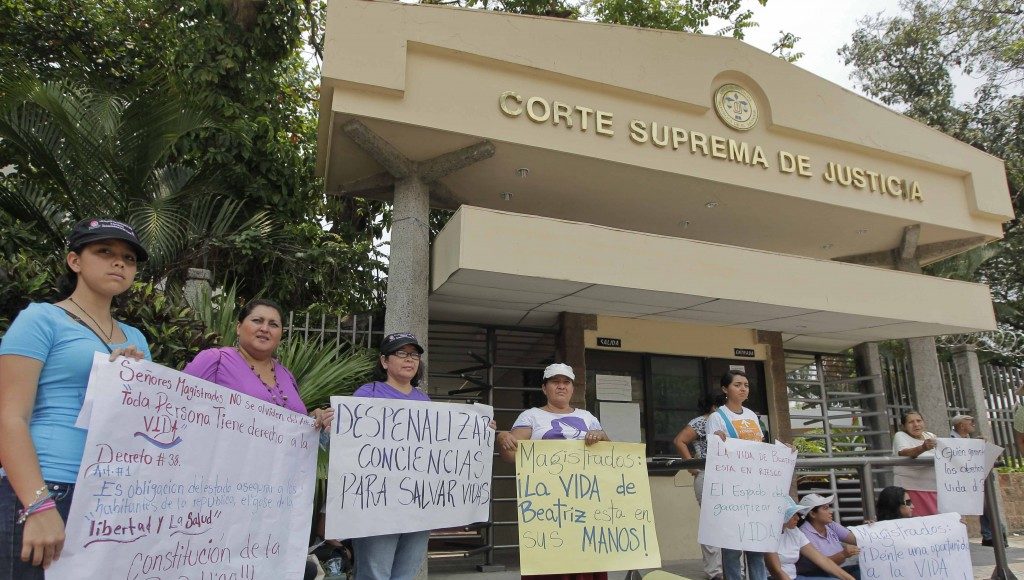Beatriz, the young Salvadorean woman denied a therapeutic abortion by the country’s Supreme Court, had a caesarean section on June 4 when she showed signs of contractions and ‘an accumulation of amniotic fluid’. The baby, a girl, suffered from anencephaly and died between three and five hours later. Vanda Pignato, Minister for Social Inclusion and wife of Salvadorean president Mauricio Funes, pleaded for Beatriz to be left in peace and expressed regret that the Supreme Court had so long delayed a decision in the case. “When they want to act against the government,” she said, “they do it in 24 hours. When they need to save the life of a young woman, they take 40 days.”
On May 29, the Salvadorean Supreme Court had voted by three to two to refuse the petition on behalf of the young mother, known as ‘Beatriz’, to have an abortion to save her own life. Beatriz is 22 and suffers from lupus and kidney failure. Doctors had estimated that her life was in serious danger if the pregnancy (then close to 27 weeks) continued to term. The unborn baby was diagnosed in utero with a condition known as anencephaly. It was missing much of its brain and was almost certain to die soon after birth. Beatriz’ petition was backed by the country’s Ministry of Health and by human rights groups, who demonstrated outside the court.
El Salvador (along with Chile and Nicaragua) has a constitution which backs the right to life from the moment of conception and normally excludes all consideration of the mother’s health. Abortion is forbidden under Article 133 of the penal code which lays down long terms of imprisonment for any doctor who performs the procedure.
However on May 30, the Inter-American Court of Human Rights intervened to order the Salvadorean Government to facilitate without delay the necessary procedure for Beatriz. The Ministry of Health responded by stating that at the first sign of any worsening of the mother’s condition, doctors would intervene to end the pregnancy. Beatriz’s supporters, however, argued that only immediate intervention could ensure the mother’s health. In the event, doctors were able to conduct a (legal) caesarean section.
Amnesty had previously published a moving video which contains Beatriz’ own appeal.
Beatriz, la negación del derecho a la salud from Mariana Moisa on Vimeo.

